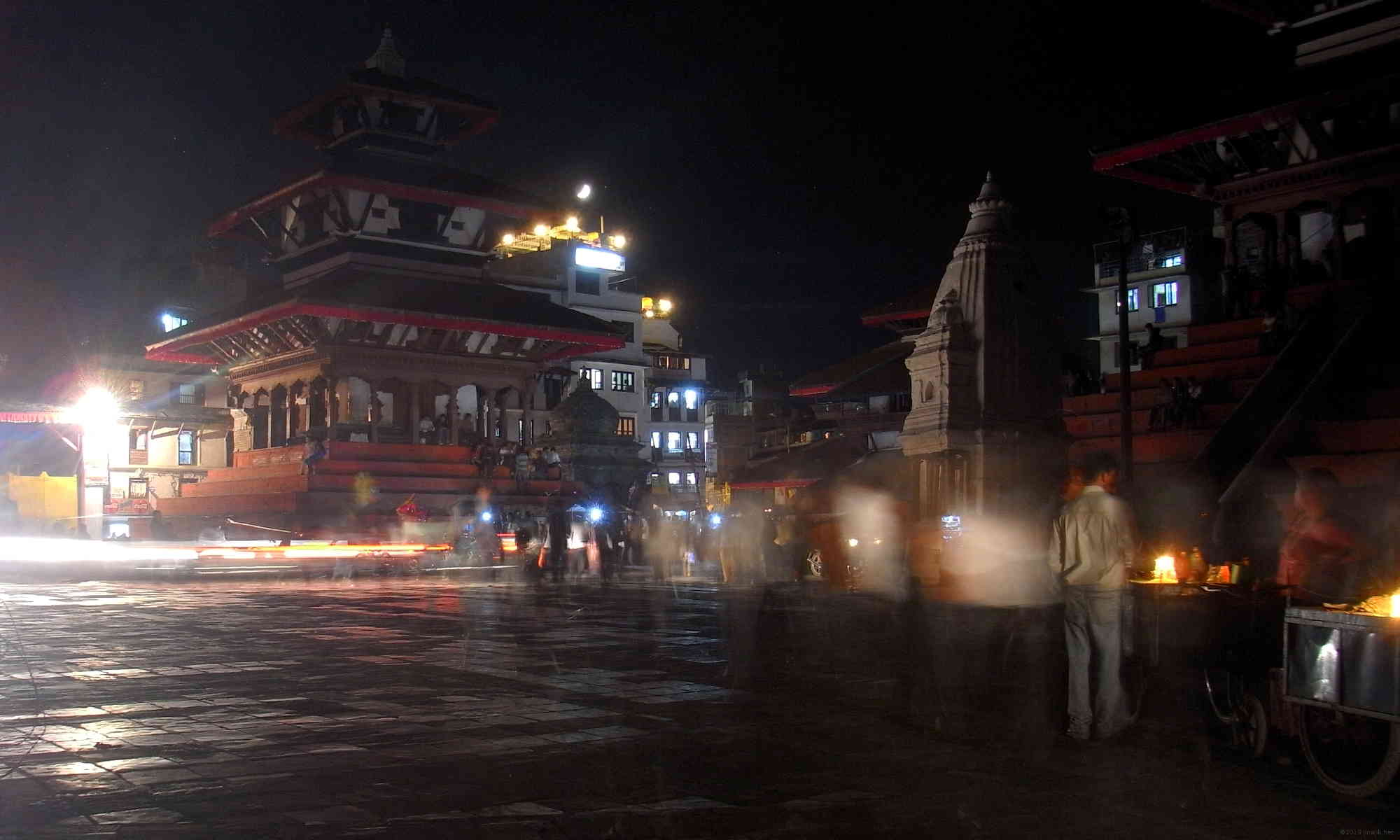Widdess, Richard. ‘Implicit Rāga Knowledge in the Kathmandu Valley.’ Analytical Approaches to World Music 1 (1), 2011, pp.73-92. [abstract / PDF (11 MB)]
Abstract extract
The term rāga is current not only in the classical traditions of North and South Indian music, where it is the subject of an extensive written and oral theory, but also in many non-classical traditions especially of religious music in South Asia. For example, devotional songs (dāphā) sung by groups of Newar farmers in the Kathmandu Valley, Nepal, are regularly attributed to rāgas; but there is little explicit (i.e. verbally expressed) knowledge about rāga among the performers. […] The present study suggests that rāga-preludes sung before each dāphā song constitute melodic models that underlie song melodies. […]



